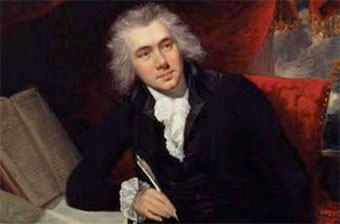
From ancient times to the modern day, politicians embody good causes for disingenuous reasons. They may use religious overtones and appeal to the masses in moral campaigns.
William Wilberforce is a figure in British history who receives enormous credit for ending the English slave trade in 1807. Wilberforce does not deserve the praise he's given however.

He prolonged slavery deliberately.
In fact, Wilberforce supported its continuation for personal benefit. He was a gradual, begrudging abolitionist who especially loathed the poor and working people. Here are the facts.
Wilberforce did not see fit to free England's society from its fixed socioeconomic order. His politics were oppressive and meant to empower rich elite, not the working class.
Wilberforce supported the Habeas Corpus Suspension Act of 1794, which remained effective till 1802. Wilberforce led a prosecution on the London Corresponding Society for high treason.
This primarily working-class party wanted Parliamentary reform (Wilberforce). Their crime? Thomas Paine's The Age of Reason had been LCS' official manifesto.
As a result, Wilberforce would support 65 leading members's arrest (Workers, July 2007). He had the book's publisher jailed after that (BBC).
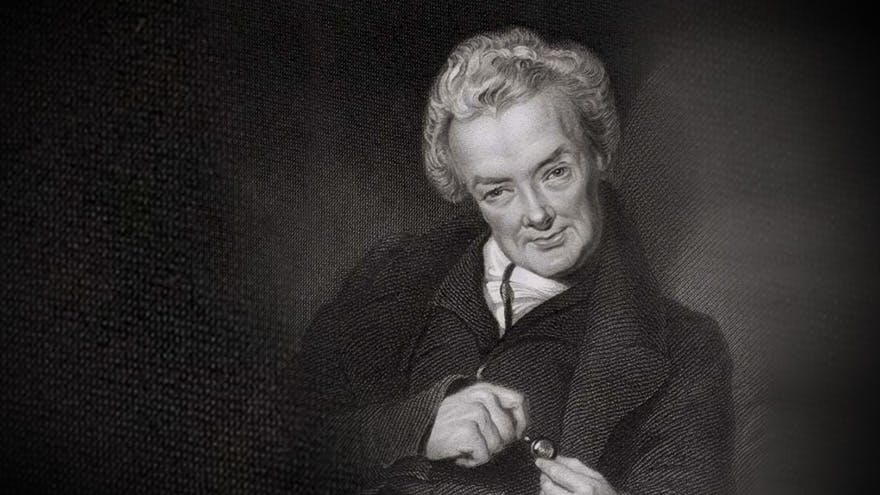
Wilberforce voted for Pitt's "Gagging Bills", a series of laws aimed at freedom of speech and seditious assemblies of over 50. 1795's Treasonable Practices Act included any dissent in written or spoken word. Pamphlets, publication companies and individuals were no longer safe.
Trade union members, journalists, publishers faced arrests on no
evidence.
Such acts passed from 1795 to 1799 (Workers).
Wilberforce stood by Parliament's extremism.
He saw "no reason to believe that government abused the power commited to them".
Wilberforce and other elites launched no less than 42 prosecutions via
censorship and the Proclamation Society.
Later it was renamed the Society for the Suppression of Vice, which the contemporary journalist Sydney Smith called 'Society for the Suppression of Vice among persons with less than £500 a year'.
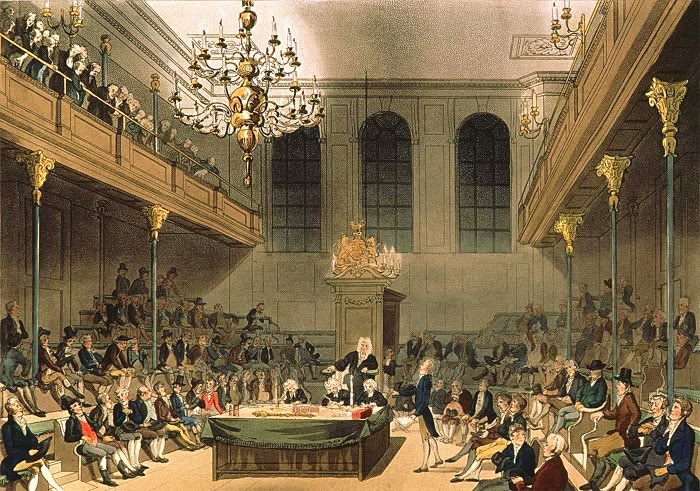
"Christianity renders the inequalities of the social scale less galling to the lower orders, whom also she instructs in their turn to be diligent, humble, patient: reminding them that their more lowly path has been allotted to them by the hand of God."
Wilberforce used religion, specifically Evangelical Christianity, to trumpet his beliefs on pre-destined classes (A Practical View of Christianity). The Combination Acts singularly targeted trade unions, "a general disease in our society".
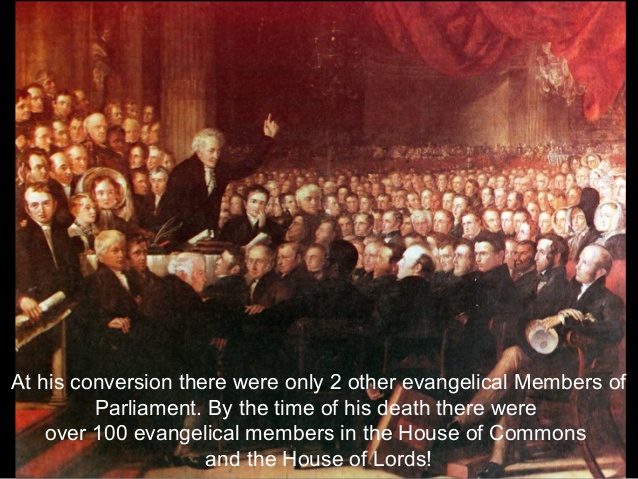
Britain was experiencing rapid change as revolution took shape across a semi-globalized world. This horrified the British upper-crust, who did not plan for industrial or social change.
Wilberforce and John Pitt crushed the ability to form a union (and personal opinion). Pitt's Combination Act suppressed groups and trade societies that questioned economic inequality, exploitation and stagnant wages (A Web of English History).
His hypocrisy on abolition astounded his fellow Englishmen. Sir Francis Burdett confronted Wilberforce directly, asking how he could advocate Africans' freedom yet be an impetus for suspension of rights in his own country (In the Image of God).
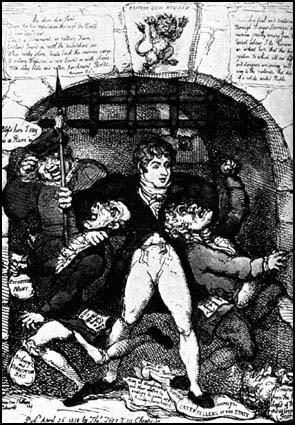
Political cartoon of Sir Burdett in jail
Thomas Anson, Frederic Harrison and Thomas Hughes drafted a Minority Report in response to Parliament's anti-union one. This version contained vital protections for trade union funds and operations: (i) Persons combining should not be liable for indictment for conspiracy unless their actions would be criminal if committed by a single person; (ii) The common law doctrine of restraint of trade in its application to trade associations should be repealed.
(iii) That all legislation dealing with specifically with the activities of employers or workmen should be repealed; (iv) That all trade unions should receive full and positive protection for their funds and other property. (The Combination Acts)
The 1871 Trade Union Act absorbed these principles, and
significantly stunted Wilberforce's efforts.
While the Industrial Revolution progressed throughout the
19th century, colonial
slavery simultaneously posed a serious threat to British
economic development. Their West Indies colonies had rebelled for decades.
These were Britain's crown jewels growing barren under the immense
strain of
Caribbean plantation systems. Mass cultivation increasingly took its toll on
Barbadian soil and the African population.
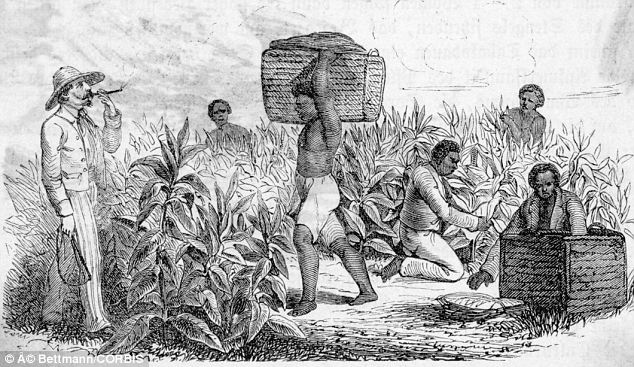
Imperialism plunged the Leeward Islands, St. Domingue (Haiti), Barbados and Jamaica into poverty that left lasting damage.
Simply put, the English-Caribbean slave colonial system failed by way of sociocultural bankruptcy. Emerging ideals of national progress did not reach them since British landowners did not want to invest their riches in infrastructure. Indigenous and African slaves rebelled and won.
The dominant agribusinesses of the day were plantations,
and like today would burden the surrounding land (The Problem of Slavery in Western Culture).
So English capitalists
set sights elsewhere.
Free labor mattered more than freedom for William Wilberforce. His goal was a
"system of progressive improvement in the condition of slaves, which is
necessary to raise them from the state of brutes into that of rational beings" (The British West Indies at
Westminster, 1789-1823,
pg. 23)
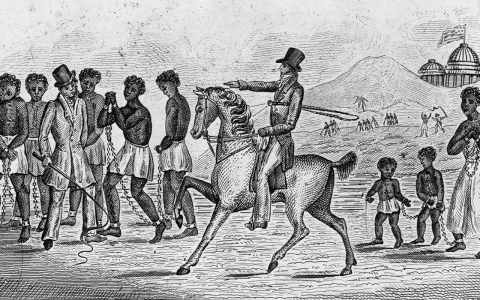
In time, Wilberforce reintroduced slavery to Africa and the Americas. He would provide a prototype for British labor camps. Sierra Leone's Freetown appeared as a mixed-race and progressive capital of Wilberforce and the Clapham Sect's creation.
This was a clever illusion. Wilberforce and the Clapham Sect channeled the freed slaves into apprenticeship—indentured slavery.
The British Royal Navy intercepted slave ships that provided a key component in Freetown's emerging labor force (Caroline Davies, The Guardian, 2010). This deceptive maneuver was repeated by another Christian capitalist from England: David Livingstone.
The Clapham Sect: How Wilberforce's Circle Transformed Britain (Stephen Tomkins, 2010)
The Problem of Slavery in Western Culture (David Brion Davis)
William Wilberforce: enemy of the working class (Workers, 7-07)
William Wilberforce was complicit in slavery (The Guardian, 8-03-10)
William Wilberforce 'condoned slavery', Colonial Office papers reveal (The Guardian, 8-02-10)
Wilberforce (John Pollock & Frederick Davidson, 1978)
The British West Indies at Westminster, 1789-1823: Extracts from the debates in Parliament (Eric Williams, 1954)